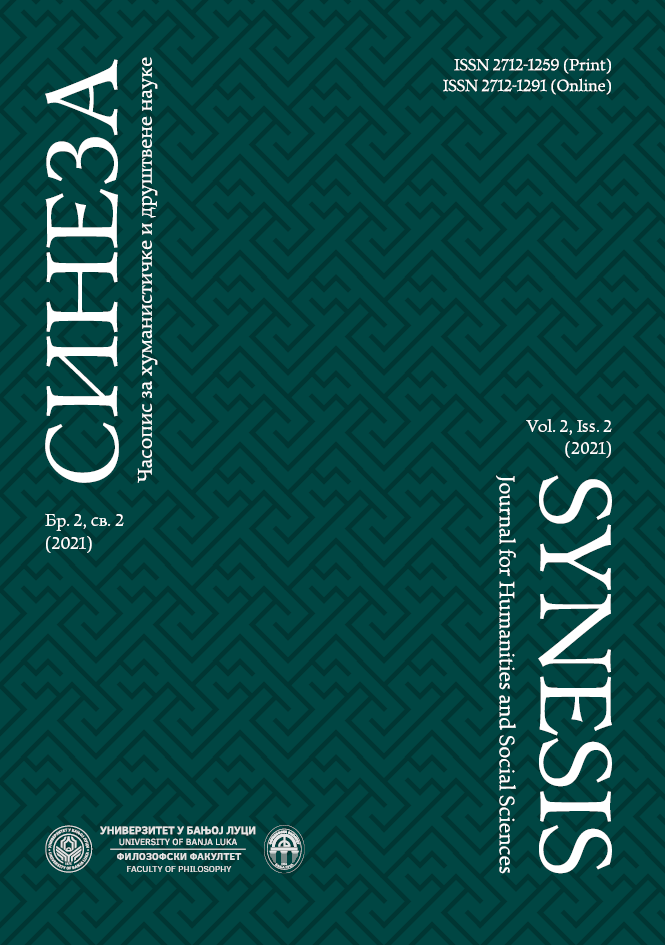Pregled istraživanja o povezanosti socio-emocionalnih kompetencija i vršnjačkog nasilja kod učenika
A review of research on the connection between socioemotional competencies and peer violence in students
Author(s): Lana Lugonja, Ana Keleman, Nela Marinković SarićSubject(s): Psychology, Social psychology and group interaction, Studies in violence and power, ICT Information and Communications Technologies
Published by: Filozofski fakultet, Univerzitet u Banjoj Luci
Keywords: socio-emotional competencies; peer violence; online violence; review paper;
Summary/Abstract: Bullying is usually defined as a long-term and frequent manifestation of aggressive behavior of one child towards another with the intention of harming another child. Taking into account that information and communication technologies became a new context in which adolescents initiate and maintain interpersonal relationships with their peers, in addition to peer violence at school, this paper also addresses the problem of cyberbullying. As a type of strategy for prevention and reduction of bullying in schools, programs based on the development of social and emotional competencies (SEC) among students are very popular. The aim of this paper was to offer a systematic synthesis of literature in order to gain a better insight into the relationship between socio-emotional competencies and bullying. Guided by pre-defined inclusive criteria, this review includes 13 quantitative studies published in the last 15 years. All studies had a sample of primary and secondary school students and examined the relationship between social and emotional competencies and (cyber)bullying. All studies demonstrated a negative correlation between peer violence and higher socio-emotional competencies in students. Both gender and age differences were identified in SEC and bullying. The paper presents the results of the research, but also addresses the methodological and statistical characteristics and limitations of these studies. In this way, we analyzed the empirical basis of using programs for the development of socio-emotional competencies with the aim of preventing violence in schools. In discussion we addressed the practical implications of the results for practice, study limitations, as well as guidelines for further research.
Journal: Sineza
- Issue Year: 2/2021
- Issue No: 2
- Page Range: 19-33
- Page Count: 15
- Language: Serbian

